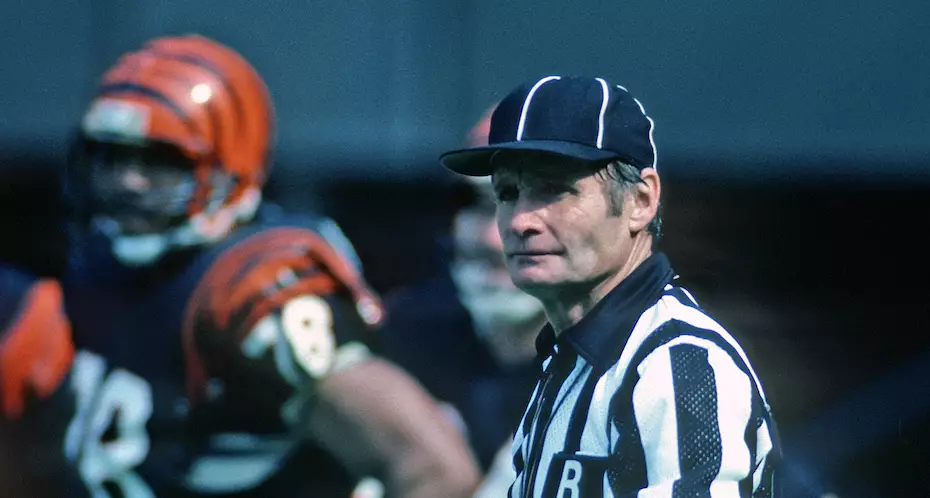The world of professional football has lost one of its defining figures. Jim Tunney, a celebrated NFL referee whose illustrious career spanned 31 years, has passed away at the age of 95. His death at his home in Pebble Beach marks the end of an era for the sport, but his contributions to NFL officiating and the broader cultural landscape remain indelibly etched in history. Tunney didn’t just officiate games; he played a pivotal role in shaping the public’s perception of refereeing during a transformative period in the NFL’s popularity.
Tunney’s journey in officiating commenced as a field judge in 1960, an era that would soon see legendary matchups that he would help define. Among these games, “The Ice Bowl” stands out—a brutal 1967 championship game between the Dallas Cowboys and the Green Bay Packers, where temperatures plummeted to a staggering -15°F. This infamous contest highlighted not only the toughness of the players but also the endurance of the officials like Tunney who braved the elements. Additionally, he was on the field for “The Catch” in 1981, when Dwight Clark’s remarkable play helped the San Francisco 49ers inch past the Cowboys. And who could forget “The Fog Bowl,” where visibility was so poor that players struggled to discern where they were on the field? These games did not just shape NFL history; they also etched Tunney’s name into folklore.
As the NFL soared in popularity during the 1970s and ’80s, Tunney’s ability to connect with audiences was pivotal. He was among the first referees to navigate the complexities of television exposure. Gene Steratore, a former NFL referee, remarked that Tunney’s presence on screen helped demystify the officiating process. His approachable demeanor allowed fans to grasp the nuances of the game, fostering an atmosphere of understanding amid the often-contentious nature of sports officiating. This connection was not merely about the decisions made on the field; it was about creating a rapport with fans who were learning the game through their living room screens.
Besides his contributions to the NFL, Tunney’s influence extended into other domains. Many in Los Angeles recognized him as Principal Tunney from his seven-year tenure at Fairfax High School. Juggling his educational responsibilities alongside officiating, he epitomized dedication, often flying out to officiate games immediately after school hours. His multifaceted career revealed a man committed not only to sports but to education and community, embodying the values of hard work and passion.
In recent statements, Tunney expressed concerns about the current state of officiating. He pointed out a pressing need for experienced mentors to guide the next generation of referees, underscoring ongoing struggles in maintaining high standards in officiating. As the NFL continues to evolve, his insights on the challenges facing new officials serve as a poignant reminder of the complexities of the role and the importance of legacy in any profession.
Jim Tunney’s passing is not just the loss of a single individual; it signifies the departure of a monumental figure in sports history—a character who played a crucial role in elevating officiating to a respected and understood profession. His legacy will undoubtedly continue to influence the NFL for years to come.


Leave a Reply